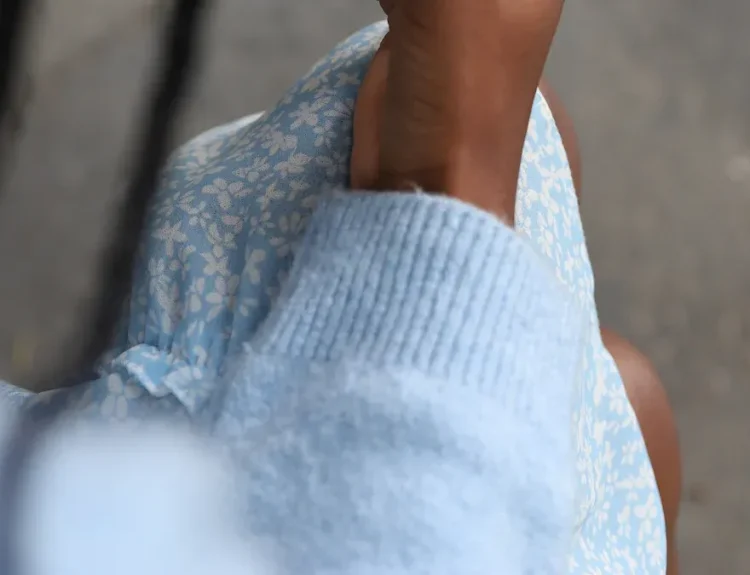are negative . When I first signed up six months ago, I had no idea I’d be facing a dating landscape where fake profiles outnumber legitimate ones by 10 to 1 .
While eharmony remains the second-most popular dating service for seniors after Match , I quickly discovered why many question if eharmony is legit. The subscription costs are indeed steep , but is eharmony worth it? After half a year of testing whether eharmony is good for finding meaningful connections, I navigated through countless scammers trying to take conversations off-platform . However, amidst the platform’s nearly equal gender split of 51% men and 49% women , I eventually found my match. This review breaks down my complete journey—the good, the bad, and everything you need to know before deciding if eharmony’s price tag matches its promise.
What Is eHarmony and Who Is It For in 2025?

“Nobody had given them one word of advice about the kind of person they should marry.” — Neil Clark Warren, Founder and former CEO of eHarmony
eHarmony stands apart in the crowded online dating landscape as a platform specifically engineered for meaningful connections. Founded in 2000, this veteran dating service operates on a fundamentally different principle than most of its competitors – instead of endless swiping, eHarmony uses a scientific approach to matchmaking [[1]](https://www.datingscout.com/eharmony/review).
Compatibility Matching System Explained
At the core of eHarmony’s offering lies its proprietary Compatibility Matching System, which employs a 32 DIMENSIONS® model to connect people based on compatibility factors found in successful relationships [2]. The journey begins with the Compatibility Quiz – a thought-provoking assessment featuring 70 questions that takes approximately 20-25 minutes to complete [1]. This comprehensive questionnaire explores everything from your relationship values and communication style to how you handle conflict [1].
After completing the quiz, eHarmony generates a Compatibility Score for potential matches, ranging from 60 to 140 [3]. These scores offer valuable insight into your compatibility with other members:
- 110+ indicates an exceptional match with high compatibility potential [4]
- 100-109 suggests a strong match worth exploring [4]
- 60-99 represents a base-level compatibility that may still have potential [4]
Your answers also create a detailed Personality Profile that helps you understand yourself better while guiding eHarmony’s matching algorithm [1]. Unlike other dating platforms, eHarmony doesn’t allow you to freely browse all profiles – instead, it removes 99.7% of incompatible users and presents you with curated matches [1].
Target Audience: Serious Daters vs Casual Users
Though eHarmony states it’s for “whatever you’re looking for” [5], the platform has established itself as the destination for those seeking serious commitments. The service attracts individuals primarily focused on marriage and long-term relationships [1]. According to statistics, eHarmony is responsible for approximately 4% of marriages in the United States and claims to facilitate around 550 marriages daily [1].
The time-intensive nature of eHarmony’s process serves as a natural filter, discouraging casual daters and creating a space where commitment-minded individuals can connect meaningfully [6]. This strategy has attracted a demographically diverse user base, yet one united by the common goal of finding lasting love [2]. Furthermore, nearly 60% of eHarmony’s paying users are women, demonstrating its particular appeal to female daters seeking substantial relationships [6].
How eHarmony Differs from Tinder and Bumble
Unlike Tinder, which connects users primarily through location-based technology and attracts a predominantly younger audience (nearly 60% between 18-30) [7], eHarmony focuses on data-driven compatibility. While Tinder excels in volume and quick connections, my experience and research show eHarmony prioritizes quality over quantity.
The fundamental difference lies in the approach – Tinder and similar apps use a swipe-based system where physical attraction often drives initial interest [1]. Conversely, eHarmony matches users based on deeper psychological compatibility before revealing profiles [1]. Additionally, eHarmony’s extensive questionnaire and curated matches create a more deliberate pace compared to the high-volume, often superficial interactions found on swipe-based platforms [7].
eHarmony has also modernized its features while maintaining its core compatibility-focused approach. Despite starting with a more traditional outlook, the platform now includes same-sex dating options (added in 2013) [8] and has partnered with LGBTQ+ organizations to better serve diverse communities [9].
My 6-Month Experience Using eHarmony

When I began my eHarmony journey six months ago, I had no idea what to expect. The platform claims that someone finds a match every 14 minutes [10], yet my experience proved that meaningful connections take time and patience.
Initial Setup and Personality Test
Setting up my eHarmony profile wasn’t the quick swipe-right process I’d become accustomed to with other dating apps. The site recommended clearing an afternoon for the setup process [1], and that advice was spot-on. The Compatibility Quiz required about 20-25 minutes to complete [1], featuring 70 questions about my personality traits, values, and relationship goals [11].
The questions ranged from practical relationship scenarios to abstract shape patterns that seemingly assessed my psychological profile [12]. After completing this extensive questionnaire, eHarmony generated my Personality Profile, providing insights into my dating preferences and relationship needs [11].
I spent additional time crafting my bio, uploading photos, and sharing details about myself. This extra effort pays off as it gives eHarmony’s algorithm more data to improve match quality [1]. Moreover, I learned that regularly updating photos causes previous matches to revisit your profile [12].
First Month: Limited Matches and Learning Curve
Initially, I checked the site daily and organized my matches diligently [12]. Each profile displayed a compatibility score (ranging from 60-140) in the top left corner, indicating our potential connection strength [11]. A score of 110+ suggests exceptional compatibility, while 100-109 indicates a strong match worth exploring [11].
The first month felt somewhat discouraging as matches seemed limited and often outside my preferences [12]. Following advice from a friend, I had my profile reviewed from a male perspective, which revealed that certain wordings came across as off-putting [12].
Notably, the eHarmony interface shows when someone views your profile and exactly when they looked [12]. This transparency helps determine when to move on from non-responsive matches but sometimes creates awkward “profile stalking” moments when checking if someone has been active recently [12].
Month 3: Better Matches and Conversations
By month three, I noticed significant improvements. eHarmony offers multiple communication methods, including “Icebreakers” where you select from five pairs of images and share your preferences with a match [11]. Their “Guided Communication” feature helped screen potential matches before committing to full conversations [11].
Despite having better matches, I found myself reducing my time on eHarmony as I explored other dating avenues simultaneously [12]. The platform seems designed for juggling multiple communications at once, although personally, I preferred focusing on one connection at a time [12].
Month 6: Finding a Real Connection
After six months of persistence, eHarmony’s compatibility-focused approach finally paid off. Their scientific methodology for connecting individuals who are compatible on deeper levels [12] ultimately led me to a genuine connection.
My experience aligns with many eHarmony success stories—someone who entered the platform somewhat skeptically yet found love. As one user testified: “I met my boyfriend on eHarmony a few years ago. We’re planning to get married in the next year” [1].
Throughout this journey, I discovered eHarmony truly excels at creating thoughtful, intentional dating experiences [12]. Unlike quick-swipe apps, the process feels less frantic and more respectful [12]. While the investment of time and patience was considerable, finding a meaningful connection made my six-month eHarmony experience ultimately worthwhile.
Free vs Paid Membership: What Do You Really Get?

After exploring eHarmony’s matching system, I wanted to understand exactly what separates free users from paying customers. The differences turned out to be substantial.
What You Can Do with a Free Account
The Basic membership on eHarmony costs nothing but offers surprisingly decent functionality. With this free account, I could complete the Compatibility Quiz and browse through all potential matches without time restrictions [13]. Subsequently, I could view limited profile information, send and receive Likes, and even send one first message [14]. Another benefit was the ability to browse anonymously and see who visited my profile [15].
Nevertheless, there’s a major limitation – all profile photos remain blurred [16]. This made it impossible to see what my potential matches actually looked like, creating an obvious roadblock in the dating process.
Premium Features Breakdown
Upgrading to Premium unlocked eHarmony’s complete functionality. All Premium tiers include identical features:
- Unlimited messaging with all members
- Full access to all profile photos
- Ability to see who viewed your profile
- Distance search capabilities
- Detailed personality profile
- Dedicated customer support [17]
The only difference between Premium tiers is subscription length. Premium Light runs for 6 months at approximately $65.90 monthly ($395.40 total). Premium Plus covers 12 months at $45.90 monthly ($550.80 total). Premium Extra extends to 24 months at $35.90 monthly ($861.60 total) [18].
Obviously, these are regular prices – eHarmony frequently runs promotions that significantly reduce costs [19]. During my research, I noticed a common welcome offer of 50% off the first month of Premium Plus [10].
Is the Free Version Worth Trying?
Frankly, the free version mainly serves as a preview rather than a functional dating tool. Throughout my testing, I found it virtually impossible to make meaningful connections without upgrading. As one source bluntly states, on the free version you can’t do “well, anything really” [20].
Certainly, testing the free version helped me understand eHarmony’s interface and matching system before investing. In contrast to other dating apps, eHarmony’s free tier is notably limited [21].
For serious relationship-seekers, the premium membership becomes practically essential. The curated matches and thorough compatibility assessments justify the price for many users seeking long-term relationships [18]. Based on my experience, I’d recommend starting with the free version to test the waters, but be prepared to upgrade if you find promising matches.
eHarmony Cost and Subscription Plans in 2025
Looking at eHarmony’s pricing structure reveals why this dating platform is considered a serious investment in your love life. Throughout my testing, I discovered that understanding the cost breakdown is essential for making an informed decision.
How Much Does eHarmony Cost?
The price of eHarmony’s premium plans varies based on subscription length. As of 2025, the platform offers three tiers:
- Premium Light (6 months): $65.90 per month ($395.40 total) [22]
- Premium Plus (12 months): $45.90 per month ($550.80 total) [22]
- Premium Extra (24 months): $35.90 per month ($861.60 total) [22]
Interestingly, eHarmony offers flexible payment options. You can pay the entire amount upfront or split it into multiple installments—typically two, three, or four equal payments [21].
Premium Light vs Premium Plus vs Premium Extra
Contrary to what you might expect, all premium tiers offer identical features. The only difference lies in subscription duration and price per month [22]. Each premium plan includes:
- Unlimited messaging capabilities
- Complete photo visibility
- Ability to see who’s viewed your profile
- Enhanced search functionality
- Detailed personality profiles [23]
Auto-Renewal and Cancelation Issues
One crucial detail I discovered: eHarmony automatically renews subscriptions at the end of your term [24]. For instance, a 6-month subscription typically renews as a 12-month Premium Plus plan unless canceled [25].
Cancelation must be initiated at least 24 hours before your current term ends [24]. To cancel, you must either access Data & Settings on the website or email customer support [22]. Simply uninstalling the app does not stop renewal charges [26].
Several users report difficulties with cancelation. One user complained: “After my cancelation of the renewal, they charged for two months’ membership. I asked to be refunded. They refused” [27].
Is eHarmony Worth It for the Price?
Given the steep investment, worthiness depends on your dating goals. The premium features essentially unlock the platform’s basic functionality—without upgrading, you cannot exchange messages or see photos [23].
Yet, considering eHarmony’s focus on compatibility-based matching, many commitment-minded individuals find the cost justifiable. The longer subscription options offer better monthly value, albeit requiring greater upfront commitment [25].
Pros and Cons After 6 Months of Use
“I never heard them yell at each other or anything like that, but they weren’t well-matched on intelligence or interests. It was a marriage with duration, but it wasn’t a great duration because they didn’t have personality matching.” — Neil Clark Warren, Founder and former CEO of eHarmony
After completing my six-month trial, I’ve compiled a balanced assessment of eHarmony’s strengths and weaknesses.
Pros: Compatibility, Serious Matches, App Design
The compatibility matching system genuinely excels at connecting like-minded individuals [4]. With detailed personality analysis across 15 relationship dimensions, matches feel intentional rather than random [1]. Primarily, eHarmony attracts users seeking serious relationships—most members are at an age where settling down is a priority [1]. The interface remains clean, intuitive, and ad-free [1], hence navigating feels smooth compared to other dating platforms.
Cons: Price, Auto-Renewal, Limited Free Features
The pricing structure remains a major drawback—subscriptions range from $35.90 to $65.90 monthly depending on commitment length [14]. Auto-renewal poses another challenge, as cancelation must occur at least 24 hours before term expiration [12]. The free version is practically useless—you can’t even view photos without upgrading [28]. Consequently, browsing matches feels pointless without investing financially.
Is eHarmony Legit Based on My Experience?
Truthfully, eHarmony delivers on its core promise of quality connections. The platform employs verification processes to reduce fake profiles [1], yet results vary by location and demographics. As someone who found a meaningful relationship through the service, I consider it legitimate—provided you understand what you’re paying for. Overall, eHarmony works best for those willing to invest both time and money in finding a serious partner.
Conclusion
After six months on eHarmony, my journey through the platform revealed both significant challenges and eventual success. The extensive personality testing and compatibility-focused approach certainly set eHarmony apart from quick-swipe alternatives. Though the initial months felt slow and sometimes discouraging, patience ultimately paid off with a meaningful connection.
The price tag remains a major consideration for anyone contemplating eHarmony. Spending between $35.90 to $65.90 monthly represents a substantial investment compared to other dating services. Additionally, the free version offers almost no practical value beyond previewing the interface. Users must commit financially to access basic functionality like viewing photos and exchanging messages.
Undoubtedly, eHarmony works best for specific demographics – particularly those seeking serious, long-term relationships rather than casual connections. The platform’s methodical approach naturally filters out users looking for quick hookups. My experience aligns with many success stories where the scientific matching system connected compatible individuals despite initial skepticism.
The auto-renewal policy deserves special attention from new subscribers. Many users report difficulties canceling their subscriptions, so setting calendar reminders before renewal dates seems essential for anyone joining the platform.
eHarmony stands as neither perfect nor terrible – rather, it serves as a specialized tool for relationship-minded individuals willing to invest both time and money. The question “Is eHarmony worth it?” lacks a universal answer. For someone seeking casual dating, probably not. However, for those prioritizing compatibility and long-term potential, the investment might yield returns no algorithm can calculate. My personal experience suggests that behind the steep subscription fees and time commitment lies genuine potential for finding a compatible partner – if you approach the process with patience and realistic expectations.
FAQs
Q1. How much does eHarmony cost in 2025? eHarmony offers three premium subscription tiers: Premium Light (6 months) at $65.90 per month, Premium Plus (12 months) at $45.90 per month, and Premium Extra (24 months) at $35.90 per month. The platform frequently runs promotions that can significantly reduce these prices.
Q2. What is the gender ratio on eHarmony? eHarmony has a nearly equal gender distribution with 51% men and 49% women. Interestingly, almost 60% of eHarmony’s paying users are women, indicating its particular appeal to female daters seeking serious relationships.
Q3. How successful is eHarmony in matchmaking? eHarmony claims responsibility for approximately 4% of marriages in the United States and facilitates around 550 marriages daily. The platform states that someone finds a match every 14 minutes, although individual experiences may vary.
Q4. Is eHarmony worth the investment? The value of eHarmony depends on your dating goals. For those seeking serious, long-term relationships, many find the cost justifiable due to the platform’s focus on compatibility-based matching. However, the free version offers limited functionality, making a premium subscription essential for meaningful interactions.
Q5. How does eHarmony’s matching system work? eHarmony uses a proprietary Compatibility Matching System based on a 32 DIMENSIONS® model. Users complete a 70-question Compatibility Quiz, which generates a Personality Profile and Compatibility Scores (ranging from 60 to 140) for potential matches. The system then presents curated matches based on this data, focusing on deeper psychological compatibility.
Read more dating sites:










[…] eHarmony Review 2025: I Found My Match After 6 Months of Testing […]